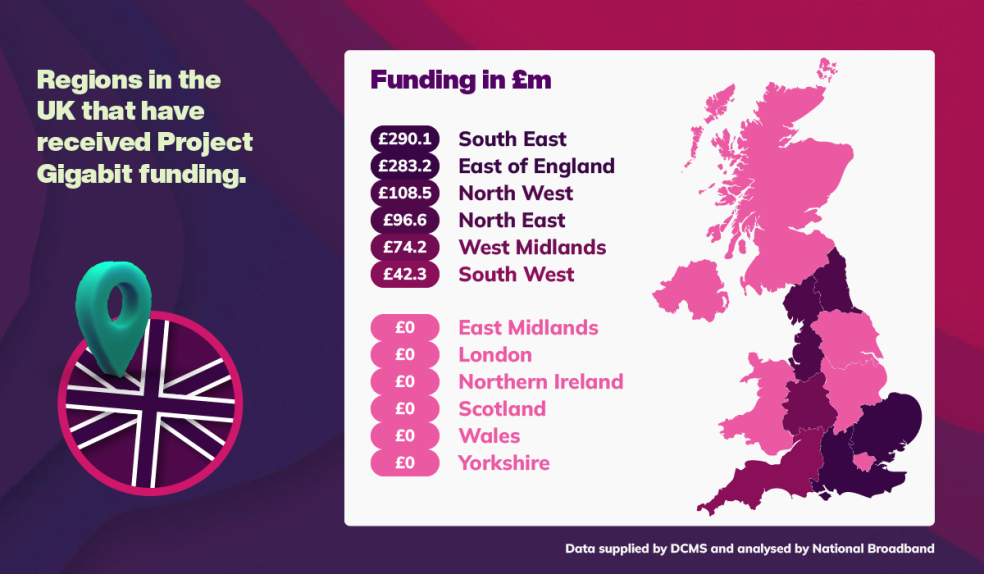
Project Gigabit is failing to deliver as millions are still without broadband funding
ess than 18 months from the Government’s target date to provide 85% of properties with gigabit-capable broadband, new analysis from alternative broadband specialists National Broadband reveals that Project Gigabit funding is largely being spent on easier and cheaper to reach areas in order to reach this target. National Broadband has launched a petition calling on the Government to fund alternative broadband solutions for poorly connected areas falling outside the scope of Project Gigabit.
Only one out of the ten local authorities with the worst broadband connectivity in the UK has to date received any funding from Project Gigabit. Moreover, 50% of residential properties without access to the national minimum standard for broadband have yet to benefit from Project Gigabit funding. With fixed line broadband speeds below 10Mbit/s, these homes cannot perform even simple online tasks, such as video calling or streaming.
Despite some funding being distributed, there are significant and counter-intuitive disparities between regions. The South West which has the greatest number of premises in England unable to access landline broadband at speeds higher than 10Mbit/s has only received £42.3m from Project Gigabit, whereas both the South East and East of England have received over £250m each. This equates to the East of England receiving over £13,000 and the South East over £9,000 per property unable to access 10Mbit/s compared to just £887 for the South West.
Project Gigabit, has yet to allocate all of its £5bn budget. However its current progress highlights clear issues within its approach and its sole focus on full fibre broadband. Although according to Ofcom, the Government is set to reach its target by 2025, this latest analysis shows that in order to reach this objective, in the majority of cases, it is applying funding to more densely populated areas that are easier and cheaper to provision.
Alternative broadband delivery solutions such as 4G broadband should also be considered, since they have the potential to rapidly and cost-effectively bring much-improved connectivity to those who are the most digitally disadvantaged.
National Broadband has calculated that it would be possible to use alternative technology to supply all 435,000 properties currently without access to usable broadband (that being a service running at more than 10Mbit/s) with a much faster connection at a cost of less than 3% the Project Gigabit’s total budget.
David Hennell, Director at National Broadband commented: “There’s a growing disparity between digital haves and have nots in the UK and, as Project Gigabit fails to address more remote and more difficult to provision areas, this digital divide will only get worse. Far too many rural communities are still endlessly waiting on the distant promise of full fibre broadband - and yet the Government is failing to fund alternatives which exist today and which would immediately dramatically improve people's connectivity at the fraction of the cost of fibre.
“This is counter-intuitive to say the least, because full fibre connectivity is being funded for properties that already benefit from perfectly good broadband performance, while properties in more rural and harder to reach areas which are typically those suffering with the poorest landline broadband speeds are being excluded. We of course acknowledge that expanding the roll-out of full fibre broadband is a good thing. However, we find it almost impossible to understand why other solutions are not also being funded for those who have the very worst current connectivity - simply put, why are those most in need being left out?
“It’s vital that the Government expands its view on improving connectivity and that’s why we’ve launched our petition. Otherwise the pursuit of its self-set target to provide 85% of UK properties with gigabit broadband will actually widen rather than close the digital divide that persists in the UK,”
Discover where your local area ranks for broadband and if it has received funding from Project Gigabit here.













